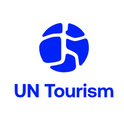Guatemala partners with UNWTO to launch Sustainable Tourism Observatory

The new Observatory is located in the city of La Antigua Guatemala, a UNESCO World Heritage Site and a leading tourism destination. Led by the Instituto Guatemalteco de Turismo (INGUAT) and supported by the Guatemalan government, the Observatory will periodically collect data and scientific evidence as it monitors the effect tourism has on the historic city. This data will then be used to assess how tourism can best be used to help drive sustainable growth and development.
"We warmly welcome Antigua´s entry into our global network of observatories. This demonstrates Guatemala's strong commitment to tourism as a force for good," said UNWTO Secretary-General Zurab Pololikashvili. "The Observatory will generate more and better evidence of the economic, environmental and social impacts that tourism has on Antigua and the surrounding area. This will facilitate decision-making so that tourism can continue to drive sustainable development."
The establishment of the new Observatory was announced during the 64th meeting of the UNWTO Regional Commission for the Americas, also held in Antigua (15-16 May). Moving ahead, the Observatory will work with an interdisciplinary group of local experts. This commitment to the input of local stakeholders is a key feature of the INSTO Observatories around the world.
Jorge Mario Chajón, Director General of INGUAT, adds: "This project will have a real multiplier effect, maximizing the economic as well as the social benefits that tourism brings. We welcome the opportunity to partner with UNWTO and work together to make tourism a key part of the 2030 Agenda for Sustainable Development."
About INSTO
The UNWTO International Network of Sustainable Tourism Observatories (INSTO) was created in 2004 with the main objective of supporting the continuous improvement of sustainability and resilience in the tourism sector through systematic, timely and regular monitoring of tourism performance and impact at the local level. The network connects committed destinations around the world, helping them to exchange and improve knowledge and understanding of the monitoring activities throughout the destination and the responsible management of tourism.
About UN Tourism
The World Tourism Organization (UN Tourism) is the United Nations agency responsible for the promotion of responsible, sustainable and universally accessible tourism.
As the leading international organization in the field of tourism, UN Tourism promotes tourism as a driver of economic growth, inclusive development and environmental sustainability and offers leadership and support to the sector in advancing knowledge and tourism policies worldwide.
Our Priorities
Mainstreaming tourism in the global agenda: Advocating the value of tourism as a driver of socio-economic growth and development, its inclusion as a priority in national and international policies and the need to create a level playing field for the sector to develop and prosper.
Promoting sustainable tourism development: Supporting sustainable tourism policies and practices: policies which make optimal use of environmental resources, respect the socio-cultural authenticity of host communities and provide socio-economic benefits for all.
Fostering knowledge, education and capacity building: Supporting countries to assess and address their needs in education and training, as well as providing networks for knowledge creation and exchange.
Improving tourism competitiveness: Improving UN Tourism Members' competitiveness through knowledge creation and exchange, human resources development and the promotion of excellence in areas such as policy planning, statistics and market trends, sustainable tourism development, marketing and promotion, product development and risk and crisis management.
Advancing tourism's contribution to poverty reduction and development: Maximizing the contribution of tourism to poverty reduction and achieving the SDGs by making tourism work as a tool for development and promoting the inclusion of tourism in the development agenda.
Building partnerships: Engaging with the private sector, regional and local tourism organizations, academia and research institutions, civil society and the UN system to build a more sustainable, responsible and competitive tourism sector.
Our Structure
Members: An intergovernmental organization, UN Tourism has 160 Member States, 6 Associate Members, 2 Observers and over 500 Affiliate Members.
Organs: The General Assembly is the supreme organ of the Organization. The Executive Council take all measures, in consultation with the Secretary-General, for the implementation of the decisions and recommendations of the General Assembly and reports to the Assembly.
Secretariat: UN Tourism headquarters are based in Madrid, Spain. The Secretariat is led by the Secretary-General and organized into departments covering issues such as sustainability, education, tourism trends and marketing, sustainable development, statistics and the Tourism Satellite Account (TSA), destination management, ethics and risk and crisis management. The Technical Cooperation and Silk Road Department carries out development projects in over 100 countries worldwide, while the Regional Departments for Africa, the Americas, Asia and the Pacific, Europe and the Middle East serve as the link between UN Tourism and its 160 Member States. The Affiliate Members Department represents UN Tourism's 500 plus Affiliate members.
UNWTO Communications Department
+34 91 567 8100
UN Tourism
